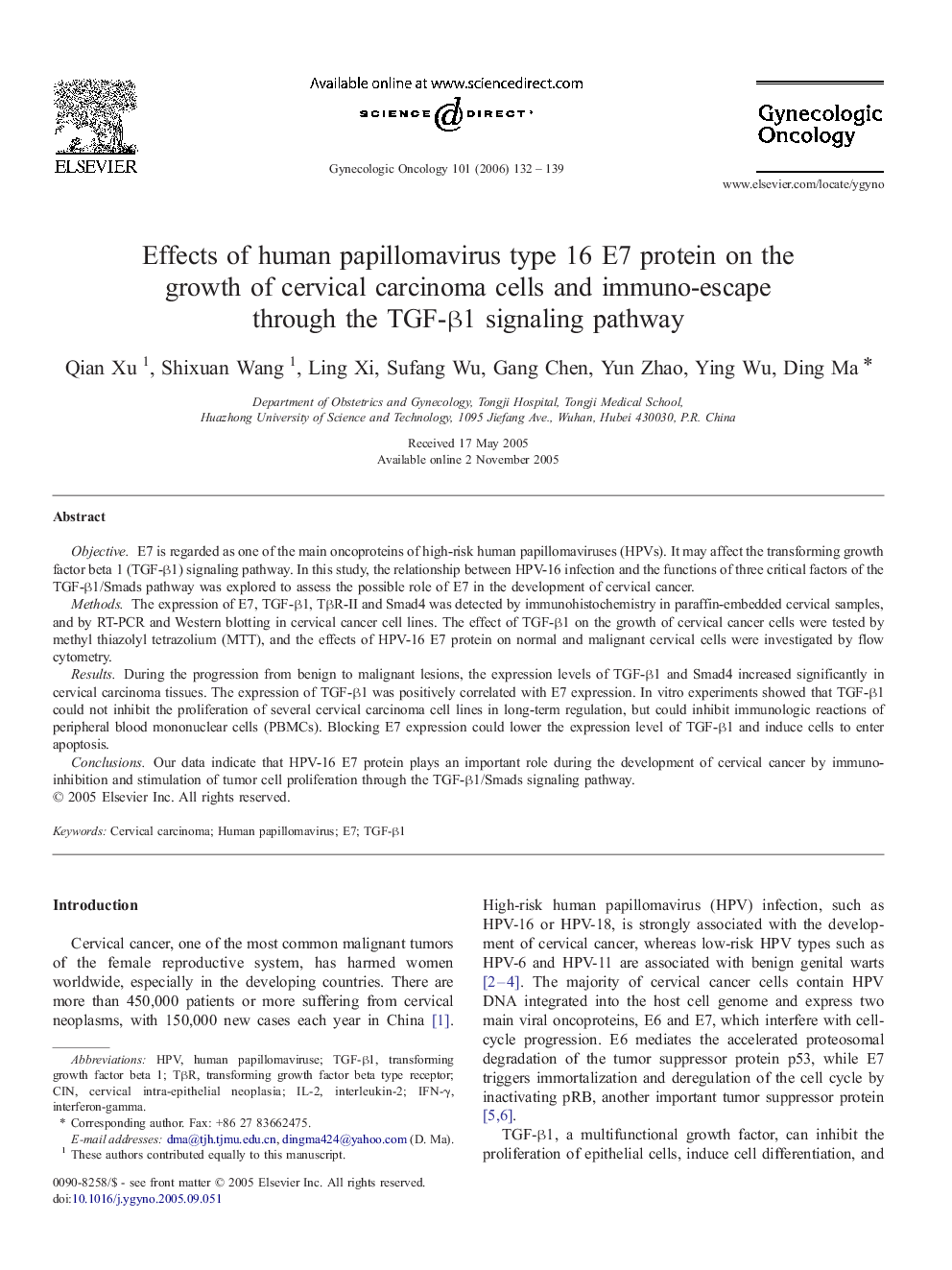| Article ID | Journal | Published Year | Pages | File Type |
|---|---|---|---|---|
| 3945216 | Gynecologic Oncology | 2006 | 8 Pages |
Objective.E7 is regarded as one of the main oncoproteins of high-risk human papillomaviruses (HPVs). It may affect the transforming growth factor beta 1 (TGF-β1) signaling pathway. In this study, the relationship between HPV-16 infection and the functions of three critical factors of the TGF-β1/Smads pathway was explored to assess the possible role of E7 in the development of cervical cancer.Methods.The expression of E7, TGF-β1, TβR-II and Smad4 was detected by immunohistochemistry in paraffin-embedded cervical samples, and by RT-PCR and Western blotting in cervical cancer cell lines. The effect of TGF-β1 on the growth of cervical cancer cells were tested by methyl thiazolyl tetrazolium (MTT), and the effects of HPV-16 E7 protein on normal and malignant cervical cells were investigated by flow cytometry.Results.During the progression from benign to malignant lesions, the expression levels of TGF-β1 and Smad4 increased significantly in cervical carcinoma tissues. The expression of TGF-β1 was positively correlated with E7 expression. In vitro experiments showed that TGF-β1 could not inhibit the proliferation of several cervical carcinoma cell lines in long-term regulation, but could inhibit immunologic reactions of peripheral blood mononuclear cells (PBMCs). Blocking E7 expression could lower the expression level of TGF-β1 and induce cells to enter apoptosis.Conclusions.Our data indicate that HPV-16 E7 protein plays an important role during the development of cervical cancer by immuno-inhibition and stimulation of tumor cell proliferation through the TGF-β1/Smads signaling pathway.
